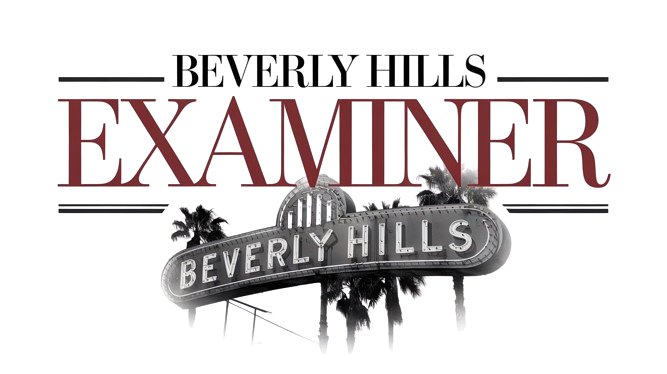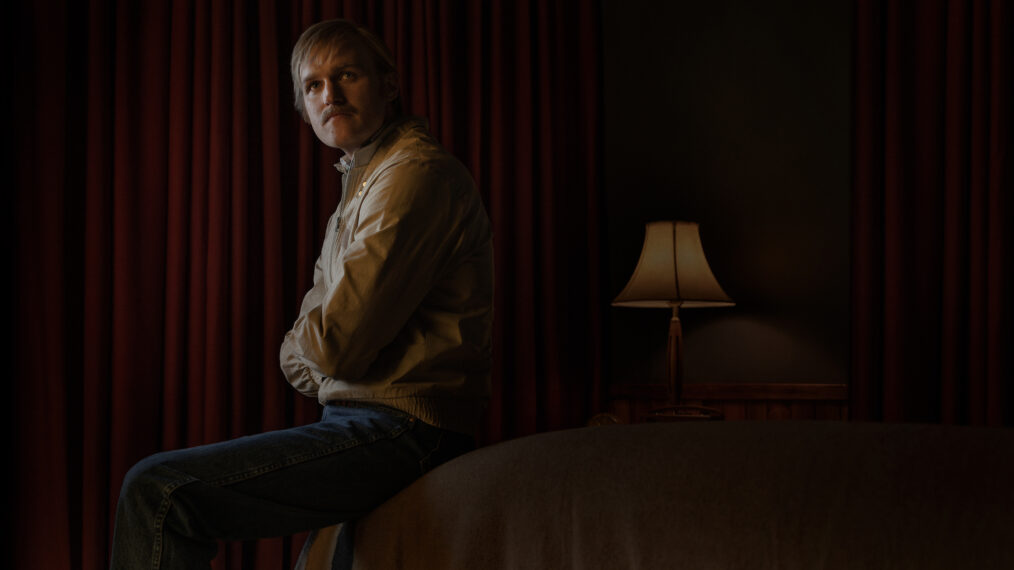[Warning: The following contains MAJOR spoilers for the Under the Banner of Heaven finale, “Blood Atonement.”]
For those unaware of the true-crime case that inspired Under the Banner of Heaven, the FX on Hulu series revealed who killed Brenda Lafferty (Daisy Edgar-Jones) and her 15-month-old daughter, Erica Lafferty, in the June 2 finale. It also brought Jebediah Pyre’s (Andrew Garfield) struggle with his faith to a complicated conclusion and provided a satisfying ending to the Mormon history flashbacks via Gil Birmingham‘s Bill Taba.
Throughout the series, the Lafferty brothers (Wyatt Russell‘s Dan and Sam Worthington‘s Ron) descended further and further into fundamentalist Mormonism (FLDS). Their religious extremism spelled danger for everyone, particularly the women in their lives whom they viewed as property.
Russell breaks down the Under the Banner of Heaven finale, sharing what he learned about the real Dan Lafferty (currently serving two life sentences in prison) while preparing for the series and what makes him such a terrifying villain, for TV Insider.
Andrew said it was important for you all to separate yourselves from the story after the work day ended because the content is so intense. I imagine that was especially true for you and Sam after filming the finale?
Wyatt Russell: For sure. I hadn’t really realized what I was doing when I did this, but afterwards I definitely did. At the end of the day, I always made sure the trailer looked exactly like it did when I walked in. Everything’s thrown away, clothes are hung up. By doing that, it was this routine you developed. I didn’t really realize until this show that that was really important. Once you close the trailer door, that day’s over. Everything’s thrown away. It’s cleaned up. That wardrobe is hung up. I’m not doing that tomorrow. It’s over. Then, I could easily go home and turn on some sport — hopefully football or hockey is on — and you just kind of forget about the day. You don’t have to remember those lines anymore, it’s just done. It was important to have that routine.
Dan is the embodiment of extreme patriarchy and religious violence. Your performance in the finale is very chilling and visceral. How did playing him impact you?
I like real life. I love acting. I really think it’s one of the greatest jobs, if you can do it. But it’s a long way from real life. The whole experience is manufactured. I am manufacturing emotions all day that I don’t feel in real life, and I’m settling into those moments to make them feel real in short spurts of time. But I never, I don’t think, connect to a character in a way that allows me to bring it home with me at all or really think much about it when I’m done, because you exorcise those parts of you that go into the character. For me, I don’t really care to feel them again, I don’t really care to do them again. I like it because the immediate feel of acting is a fulfilling experience, and once it’s over, it’s over.
As far as acting goes, I think you always learn a lot for your profession, your craft — how to be better the next time and what you can do differently or what you can do the same. That, I think, I take with me, but in terms of a character impacting me, I don’t think I allow that. That would make my life too difficult and complicated in ways where it’s like letting other peoples’ emotions or how they live their life affect how I live mine. I kind of just leave it where it lies, and it becomes what it becomes.
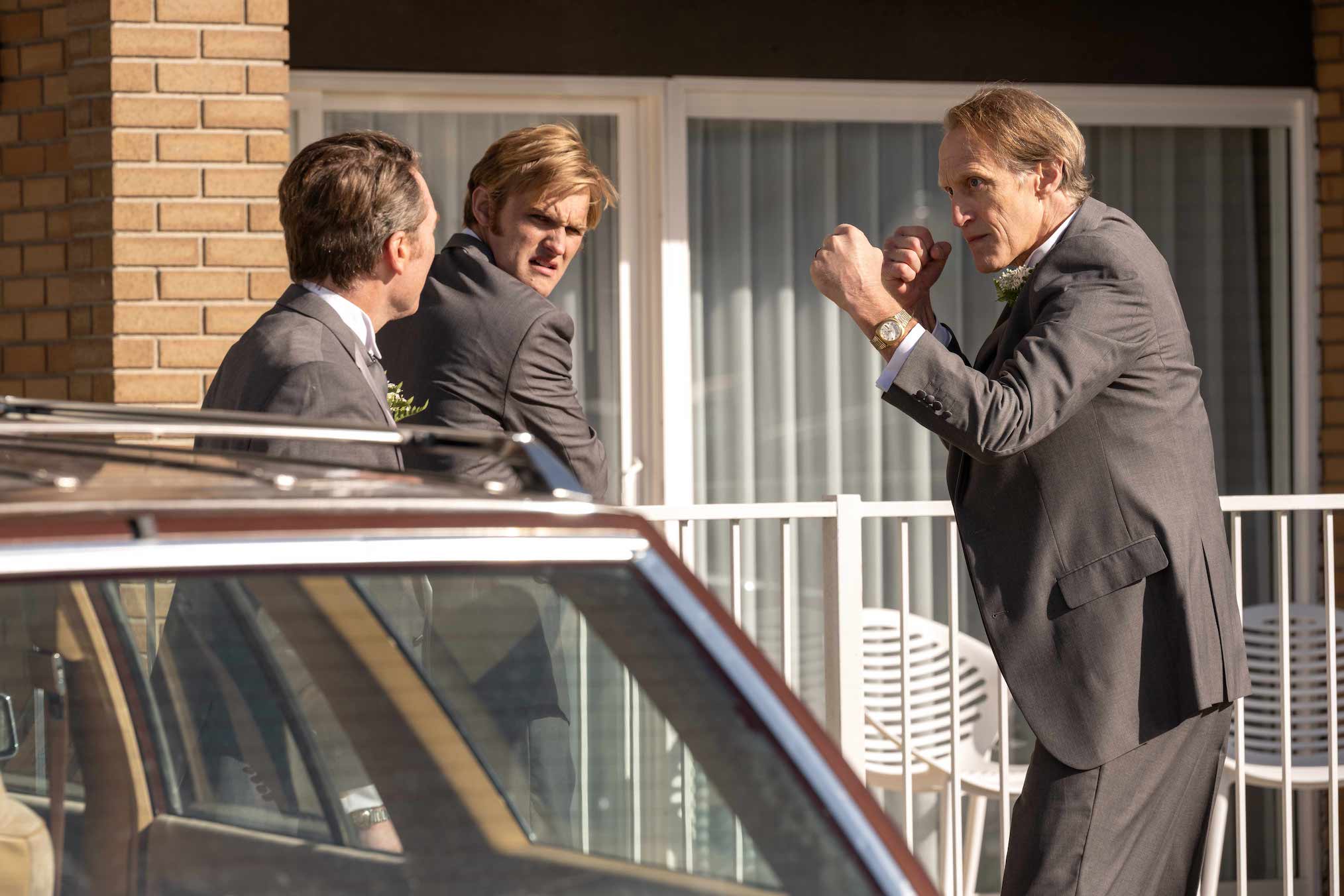
Michelle Faye/FX
There’s a point in the series where Dan transforms into this dead-eyed villain. For you, what was the moment that started Dan’s descent into the man we saw in the finale?
I think it’s after he gets beat with the belt by his dad, and he is in that hotel room. He feels the presence, the power of heavenly father, that it is him who needs to lead the family. It’s in the exultation moment. There’s anger and fear and raw emotion coming out. When he says “I’ll do anything and go anywhere to be worthy of thy wisdom,” it’s like he’s completely becoming an open vessel to whatever comes his way. I think that was the beginning of, “OK, I’m going to be the best Mormon I can be, and my dad wants me to go down this rabbit hole.” That’s how he interpreted his dad’s wants, needs, desires, and love for him. I think that was the true turning point.
Brenda’s final monologue seems like the one thing that could have possibly gotten under Dan and Ron’s skin. They weren’t enough to stop Dan from killing her, but for your portrayal of Dan, do you think she got under his skin in that final moment, and did he carry that with him through Reno? Or was Dan too far gone for that to make an impact?
I don’t know if it was getting under the skin as much as it was pleas falling on deaf ears, because that decision had already been made by God, according to Dan. Dan was always a person who whether or not he was actually listening, I don’t know, but he would listen. He would make people feel heard. And so, in that last moment, I thought it was important to show that when she was saying those things, it was like, “I’m hearing you.”
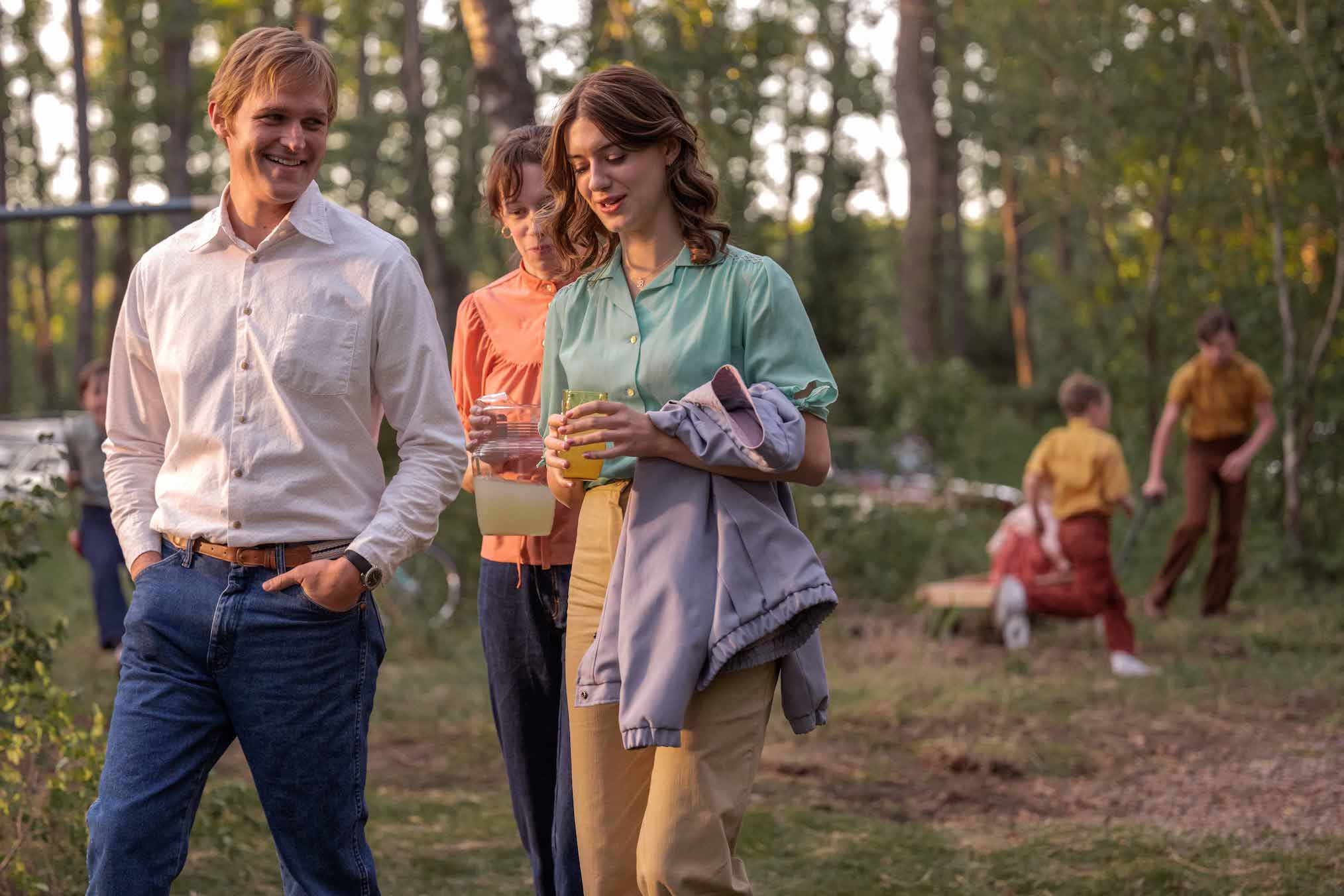
Michelle Faye/FX
In Dan’s mind, it doesn’t matter what you’re about to say. You can say whatever you want, I’m here to listen. But what’s gonna happen is gonna happen. And that’s what’s so scary about it. There was no ability to see anything other than what he thought, which is clinical narcissism. He is a clinical narcissist of the first order. He has ways of making you feel heard, but what he wants to do, he’s going to do.
Showrunner Dustin Lance Black said Brenda’s final words were created from his conversations with Dan in prison and Brenda’s letters and journals. He said he pressed Dan to tell him what Brenda was really like in those last moments, and the answer was extremely courageous, like the finale showed. Lance said Dan is clearly in the hell that Brenda described, saying he’s completely lost. Does that align with how you played the character?
The thing about Dan that’s interesting and scary is that he doesn’t come off like a liar. He doesn’t embellish when he’s speaking. The police officers and detectives used him and interviewed him a lot to get into the mind of a person who would commit crimes in the name of extremism and fundamentalism. And because he was honest in his take and lucid and clear, his testimony was valuable to law enforcement.
I think that when Lance would talk to him, he’d feel like maybe there were some things that weren’t remembered correctly or misconstrued over time, but all in all, Dan was a relatively truthful person in terms of the history of the events. Taking that into the character was important, but it’s also hard because you almost wish that they were liars.
You almost wish they were crazy, because it’s easier in certain ways. When someone’s lucid and together, it makes it a little bit harder because you’re going like, “Goddamn, how do you do this and not be delusional?” And he is delusional, he thinks he’s Elijah. He thinks the end of the world is coming. But at the same time, he acknowledges the fact that he might be crazy.
There’s an awareness, and — whether or not that awareness is based on manipulation — knowing that if he said that, that’s going to gain trust in you. If he expresses the idea that’s in your head, which is “you obviously think I’m crazy,” then you now have trust in him because you know that he is, in some ways, telling the truth.
That becomes hard to not like when you’re listening to him. It becomes hard not to respond to, and that’s what great manipulators do. It’s very difficult for you to go like, “What? You did these horrible things, but the conversation’s going well.” I know Lance had the same kind of feelings when he was speaking with him. We had conversations about that a lot, Lance and I. Taking that into the character was very important.
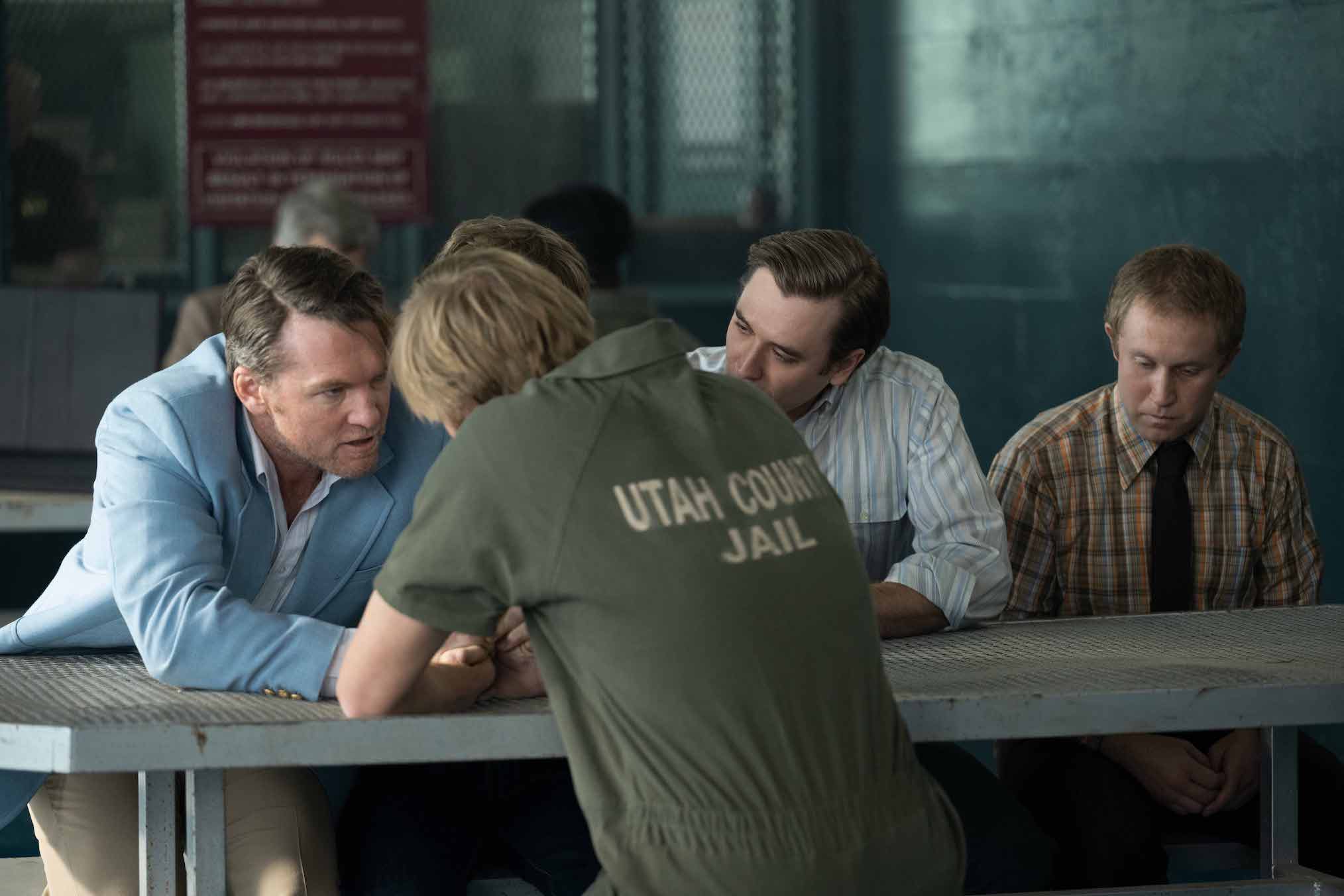
Michelle Faye/FX
In the finale, Ron almost kills Dan. Do you think Dan would’ve been able to kill Ron? Because I saw their dynamic, despite all of the intense things happening between them, as Dan really revering his older brother.
Anybody that’s capable of killing a child and his sister-in-law is capable of killing anybody. Unquestionably, the answer to that is yes. I think it’s a deep psychological thing with Dan, where he wouldn’t have wanted to, because that would’ve meant that he would’ve lost somebody who was a bit under his control.
Ron being alive meant he had some sort of control over Ron, because he was a great manipulator and it made him feel good when Ron would come back to his side and he could make Ron feel good again. He was supporting his family, and so that person was important to Dan, because that meant that Dan’s manipulation tactics were working. I don’t think he would’ve wanted to lose that feeling, because he’s such a narcissist.
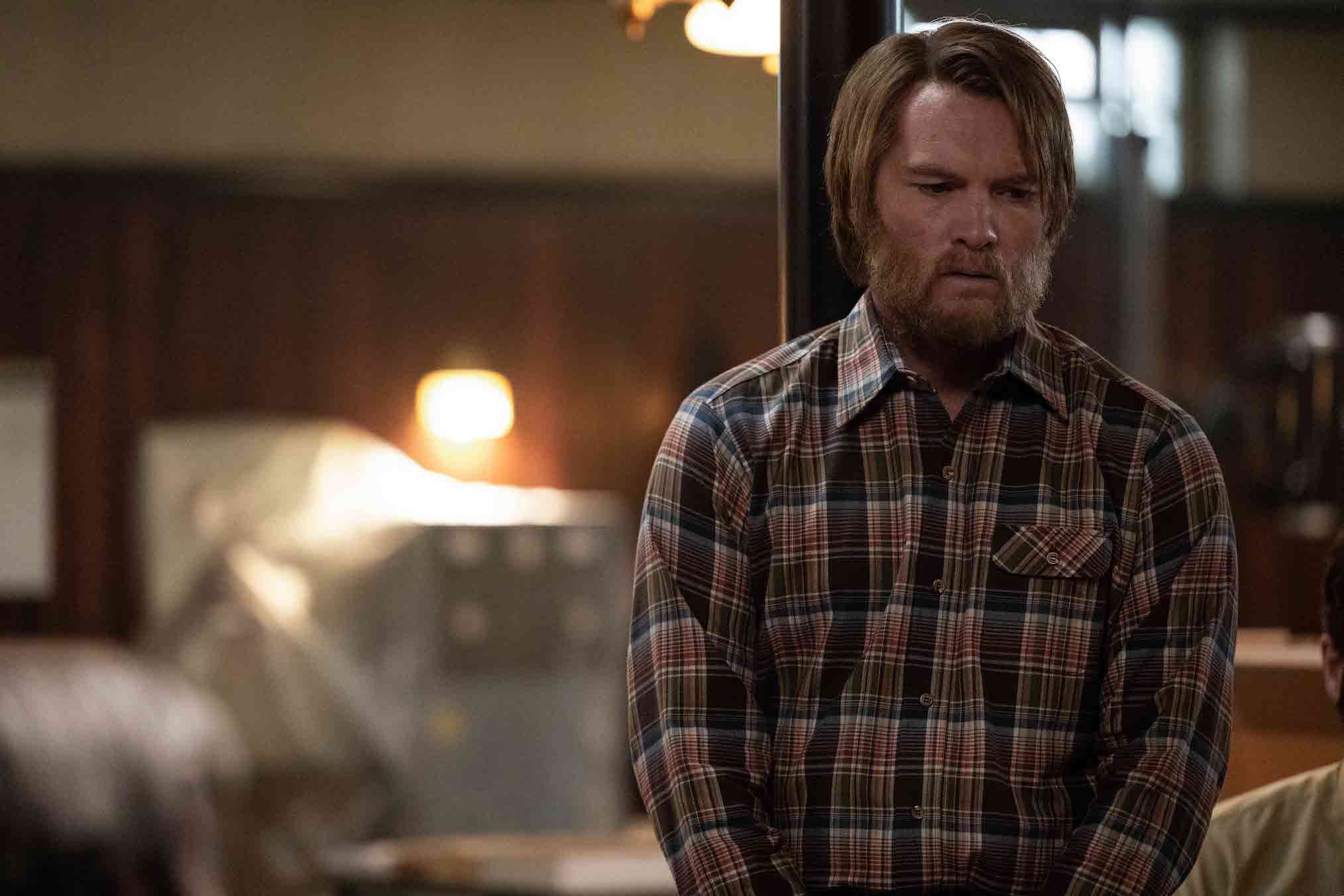
Michelle Faye/FX
That last scene was interesting, because it wasn’t necessarily in that way. It wasn’t written like that in the beginning. It was in the bathroom of a hotel room. They changed it around a bit. The real story was they were caught in a buffet line. Then in prison, Ron said, “I’ve been commanded to kill you.” And then Dan, instead of challenging him and even losing it in that moment, went, “Well, how would you do that?” Ron said “Well, come by these bars and turn around. I have this towel.” And Dan went over. He went to the bars and they literally talked through it.
It’s that truth is stranger than fiction thing where we obviously couldn’t do that because it was in prison, but it was important to get that moment when they were at odds. They were just nuts. Their cooperation with each other’s insanity was really astounding.
Your character in The Falcon and the Winter Soldier is also rather intense and violent. What draws you to telling these stories? Do you want to do something more lighthearted next?
Definitely. I did Lodge 49, which is quite possibly the most positive show next to Ted Lasso now. And then the last two things, the characters are dark. Now, I really do pine to do more lighthearted stuff and comedy, and I’m not gonna lie, it’s more fun on set. It’s more light. You’re laughing all day. It’s better for your psyche than constantly delving into these deep, dark characters all day. But the end result is always interesting.
Under the Banner of Heaven, Streaming Now, Hulu
